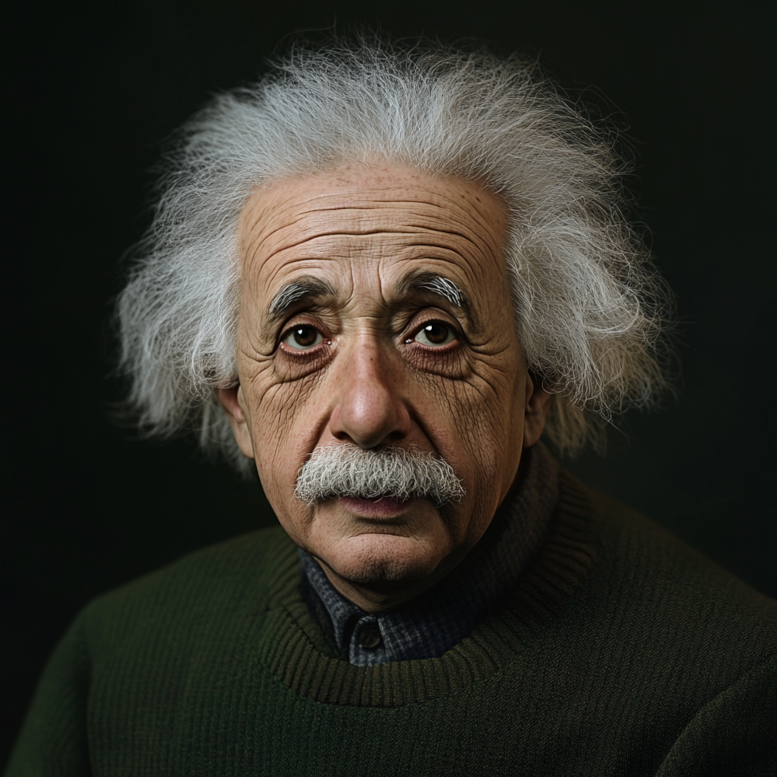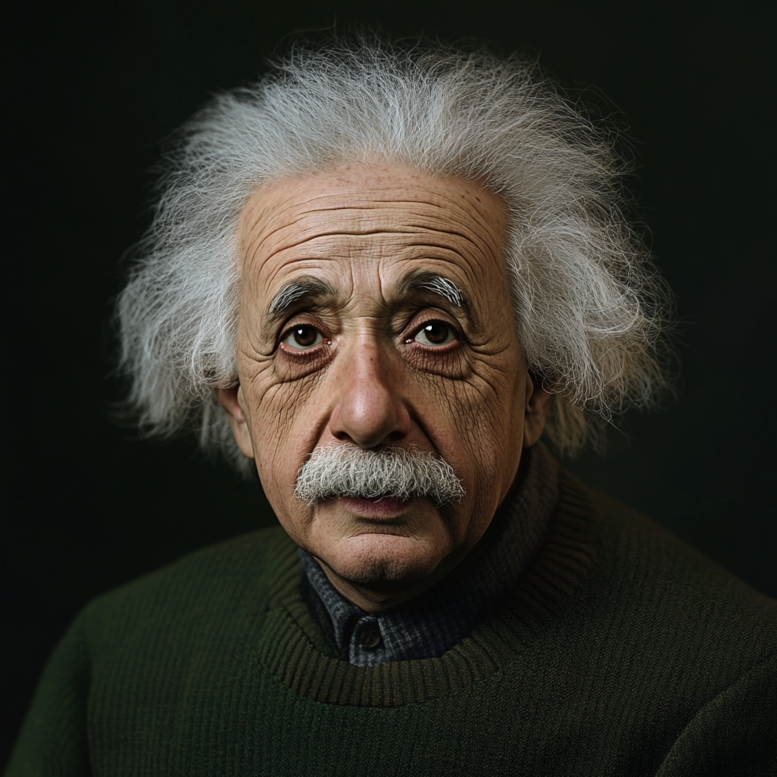


Albert Einstein (1879–1955) was a German-born theoretical physicist who is widely regarded as one of the greatest and most influential scientists of all time. His contributions to physics, particularly his theories of relativity and quantum mechanics, revolutionized our understanding of space, time, and energy. Einstein's name has become synonymous with genius, and his work continues to influence the field of physics and beyond.
Quantum Mechanics and the Einstein-Podolsky-Rosen Paradox: Although Einstein made significant contributions to quantum mechanics, he was famously uncomfortable with its implications, particularly the idea of indeterminacy and "spooky action at a distance" (quantum entanglement). In 1935, he co-authored the Einstein-Podolsky-Rosen (EPR) paper, which challenged the completeness of quantum mechanics and sparked ongoing debates in the scientific community.
Political Activism and Pacifism: Einstein was a committed pacifist and advocate for civil rights throughout his life. He was a vocal critic of nationalism and militarism, particularly during World War I. However, as the rise of Nazi Germany threatened the world, Einstein, who was Jewish, fled to the United States in 1933, where he accepted a position at the Institute for Advanced Study in Princeton, New Jersey. During World War II, Einstein signed a letter to President Franklin D. Roosevelt warning about the potential for Nazi Germany to develop atomic weapons, which led to the establishment of the Manhattan Project. Despite this, Einstein remained a lifelong advocate for peace and later spoke out against the use of nuclear weapons.
Personal Life: Einstein married twice. His first marriage was to Mileva Marić, a fellow physics student, in 1903. They had two sons, Hans Albert and Eduard, and a daughter, Lieserl, who is believed to have died in infancy. The couple divorced in 1919. That same year, Einstein married his cousin Elsa Löwenthal, who had two daughters from a previous marriage. Elsa passed away in 1936.
Later Years: In his later years, Einstein focused on efforts to unify the fundamental forces of physics into a single theory, a pursuit known as the unified field theory. Although he did not succeed in this endeavor, his work laid the groundwork for future developments in theoretical physics.
Death: Albert Einstein passed away on April 18, 1955, in Princeton, New Jersey, due to an abdominal aortic aneurysm. His brain was removed and studied after his death, but his body was cremated, and his ashes were scattered in an undisclosed location.
Legacy: Einstein's contributions to science have left an indelible mark on the world. His work transformed our understanding of the universe, and his theories continue to be a cornerstone of modern physics. Beyond his scientific achievements, Einstein is remembered for his advocacy for peace, human rights, and education. His name has become synonymous with genius, and his image—particularly his wild hair and thoughtful expression—has become a symbol of intellectual curiosity and the pursuit of knowledge.
Nobel Prize: Einstein was awarded the Nobel Prize in Physics in 1921 for his explanation of the photoelectric effect, which was crucial in the development of quantum theory. However, he was not awarded the prize for his theory of relativity, as it was still considered too controversial at the time.
Pop Culture Icon: Einstein's image and quotes are widely recognized in popular culture. Phrases like "Imagination is more important than knowledge" and "The important thing is not to stop questioning" reflect his philosophy on life and learning. His unique personality, humor, and humility have made him a beloved figure beyond the scientific community.
Educational Institutions and Awards: Numerous schools, universities, and awards are named in his honor, reflecting his lasting impact on science and education. The Albert Einstein Medal, awarded by the Albert Einstein Society in Bern, Switzerland, is one such example, given to individuals who have made significant contributions to the natural sciences, humanities, or technology.
Albert Einstein's legacy as one of the most influential scientists in history is firmly established. His revolutionary theories of relativity and contributions to quantum mechanics have profoundly shaped our understanding of the universe. Beyond his scientific achievements, Einstein's life as a humanitarian, pacifist, and advocate for civil rights continues to inspire generations. His pursuit of knowledge, dedication to peace, and enduring curiosity serve as a guiding light for those who seek to understand the world and improve it for future generations.

We use cookies
We use cookies and other tracking technologies to improve your browsing experience on our website, to show you personalized content and targeted ads, to analyze our website traffic, and to understand where our visitors are coming from. Privacy Policy.